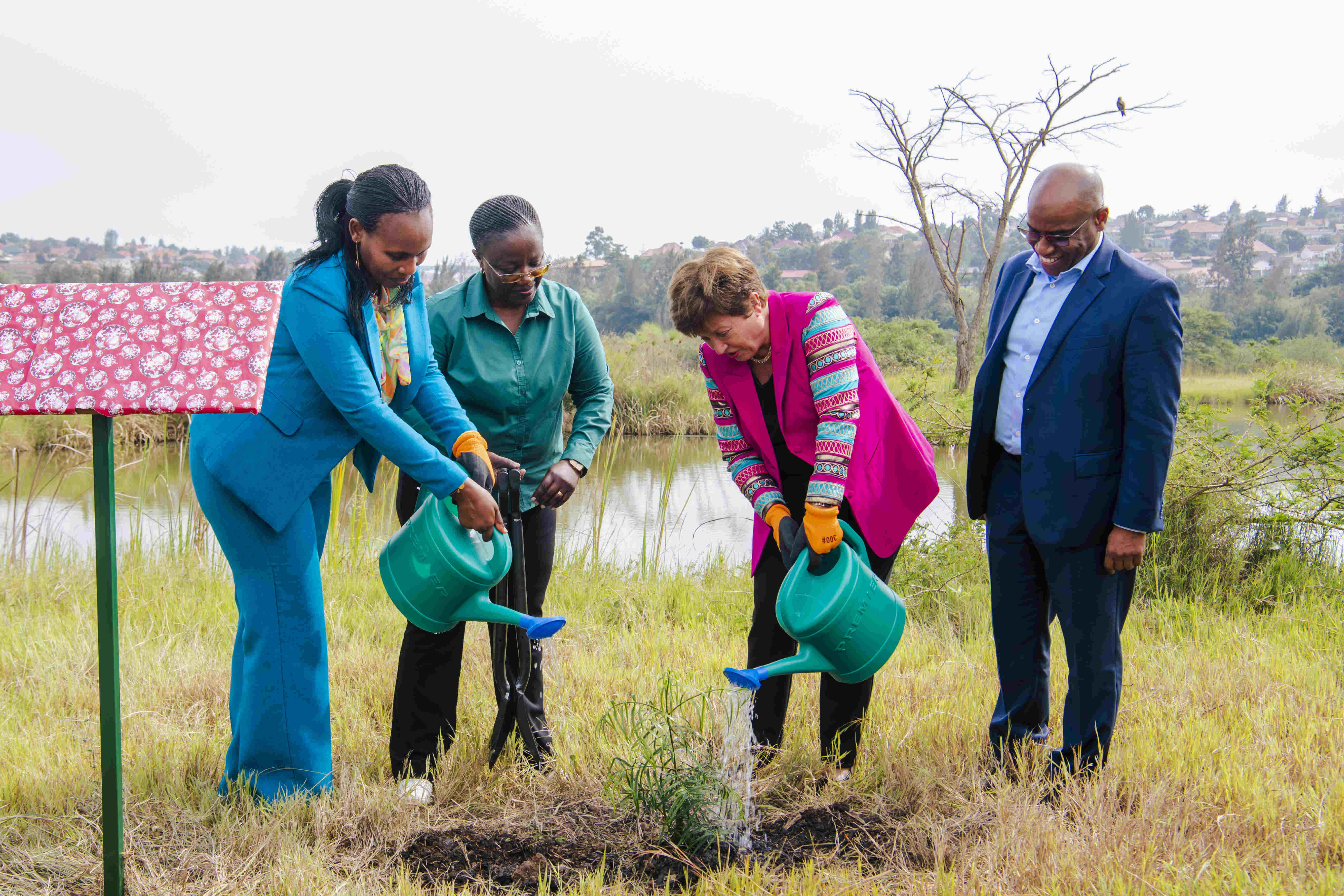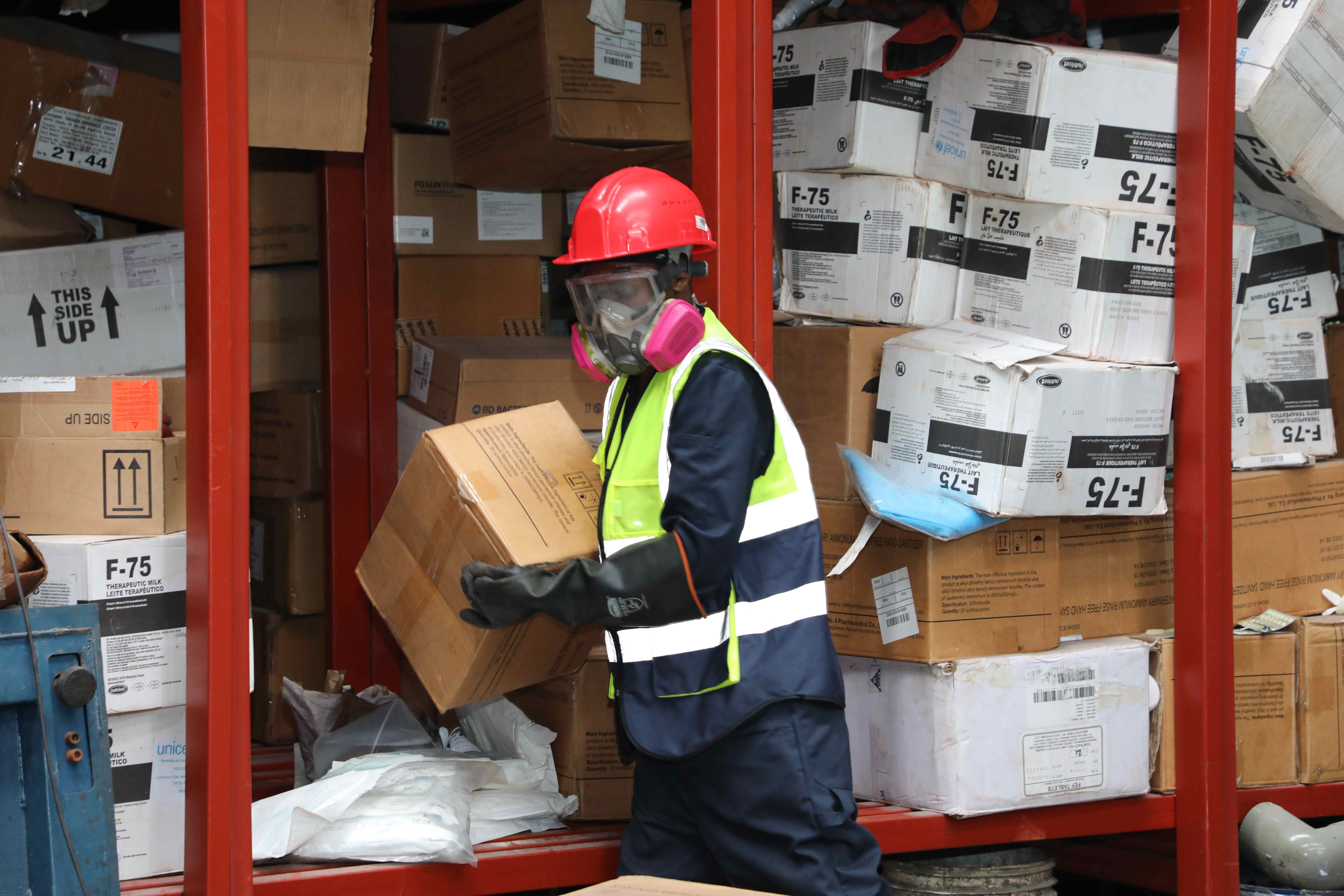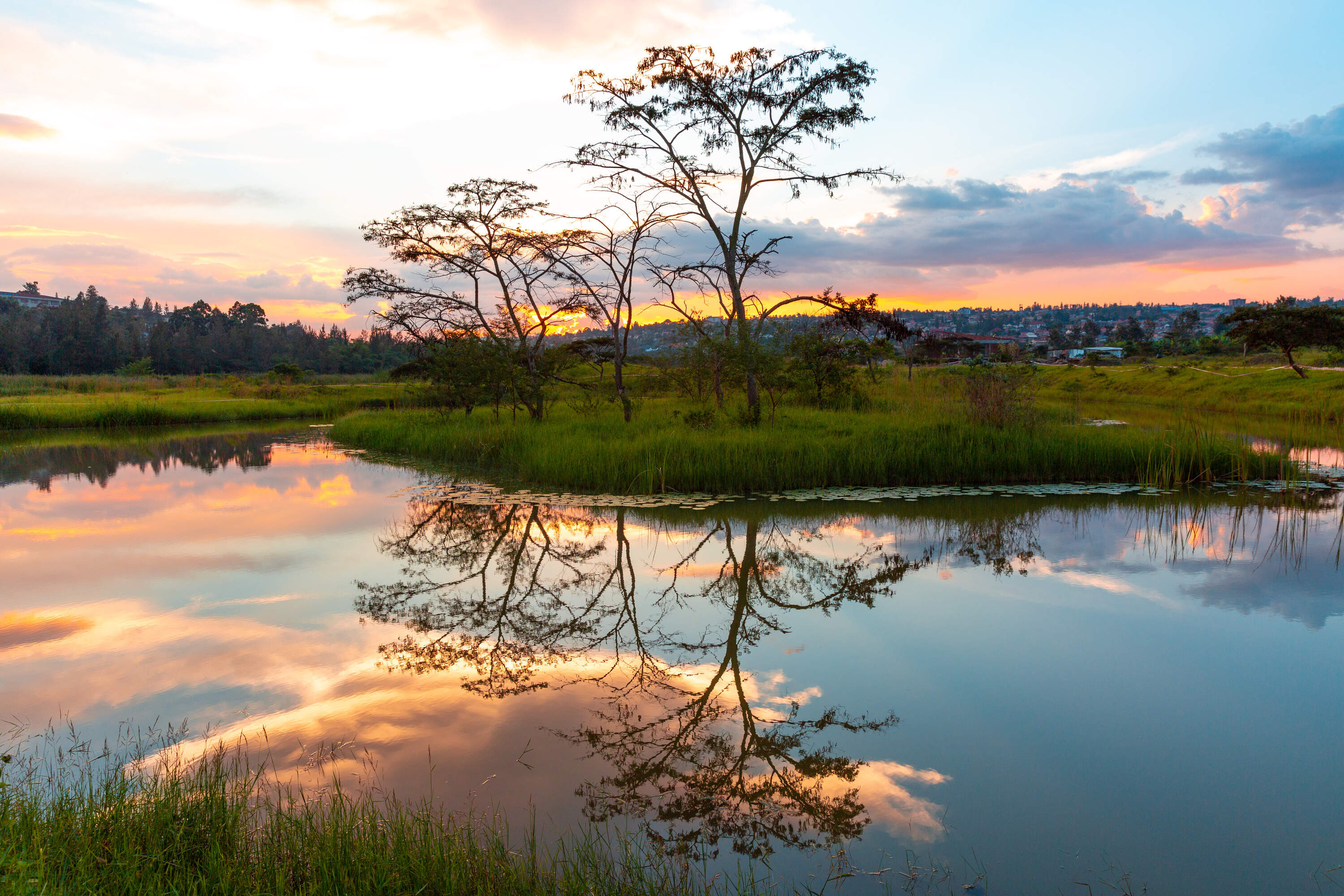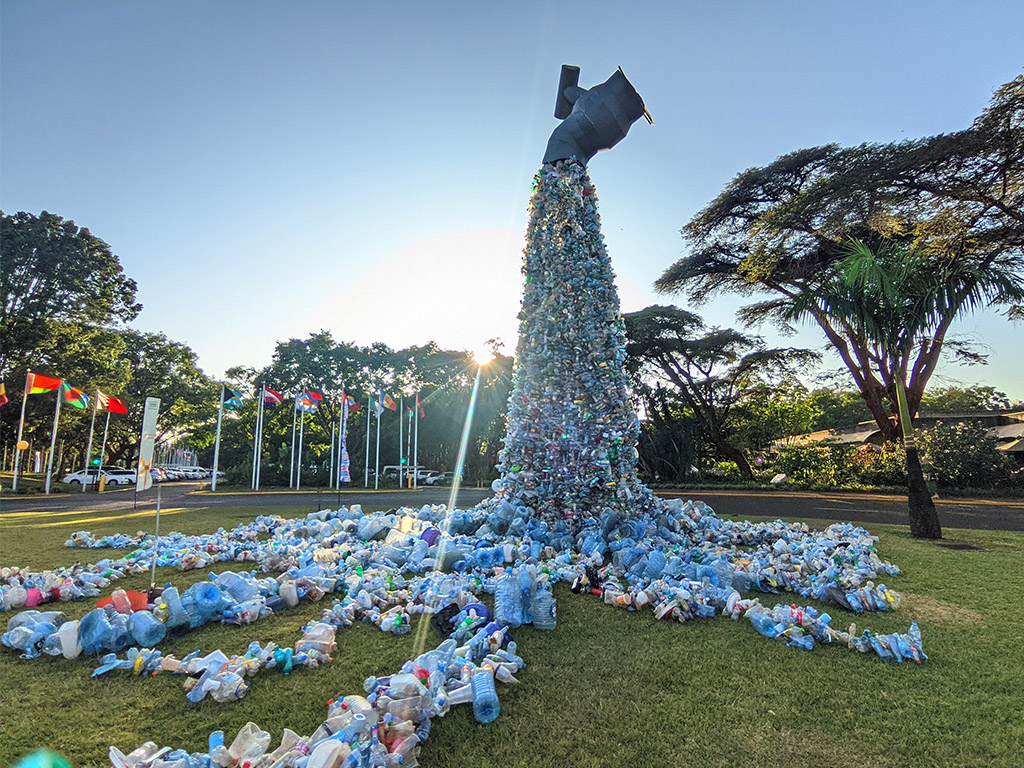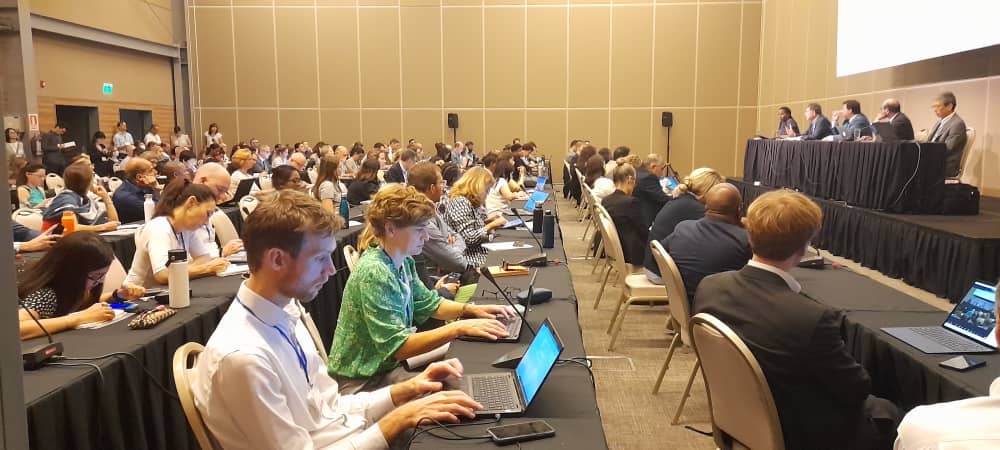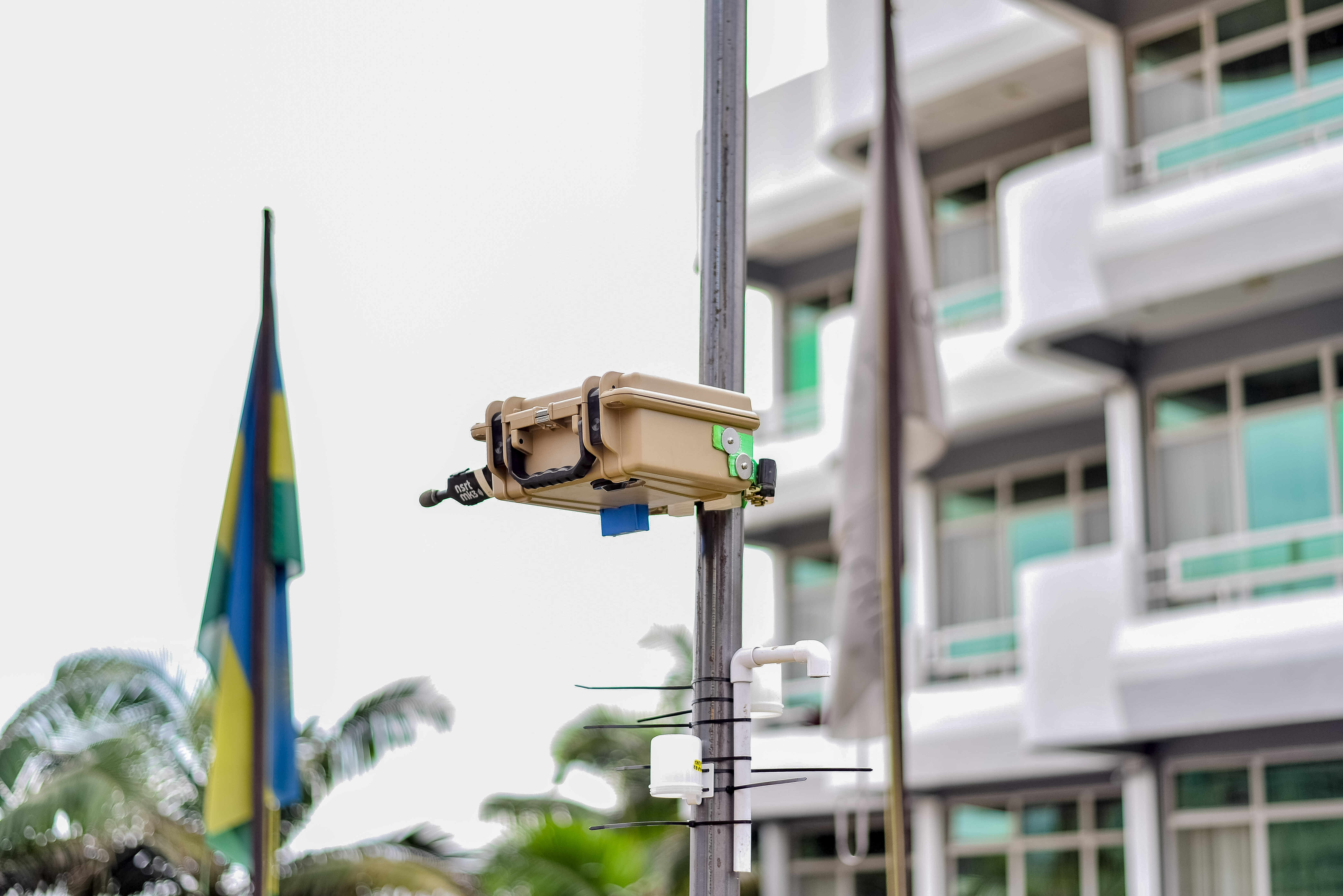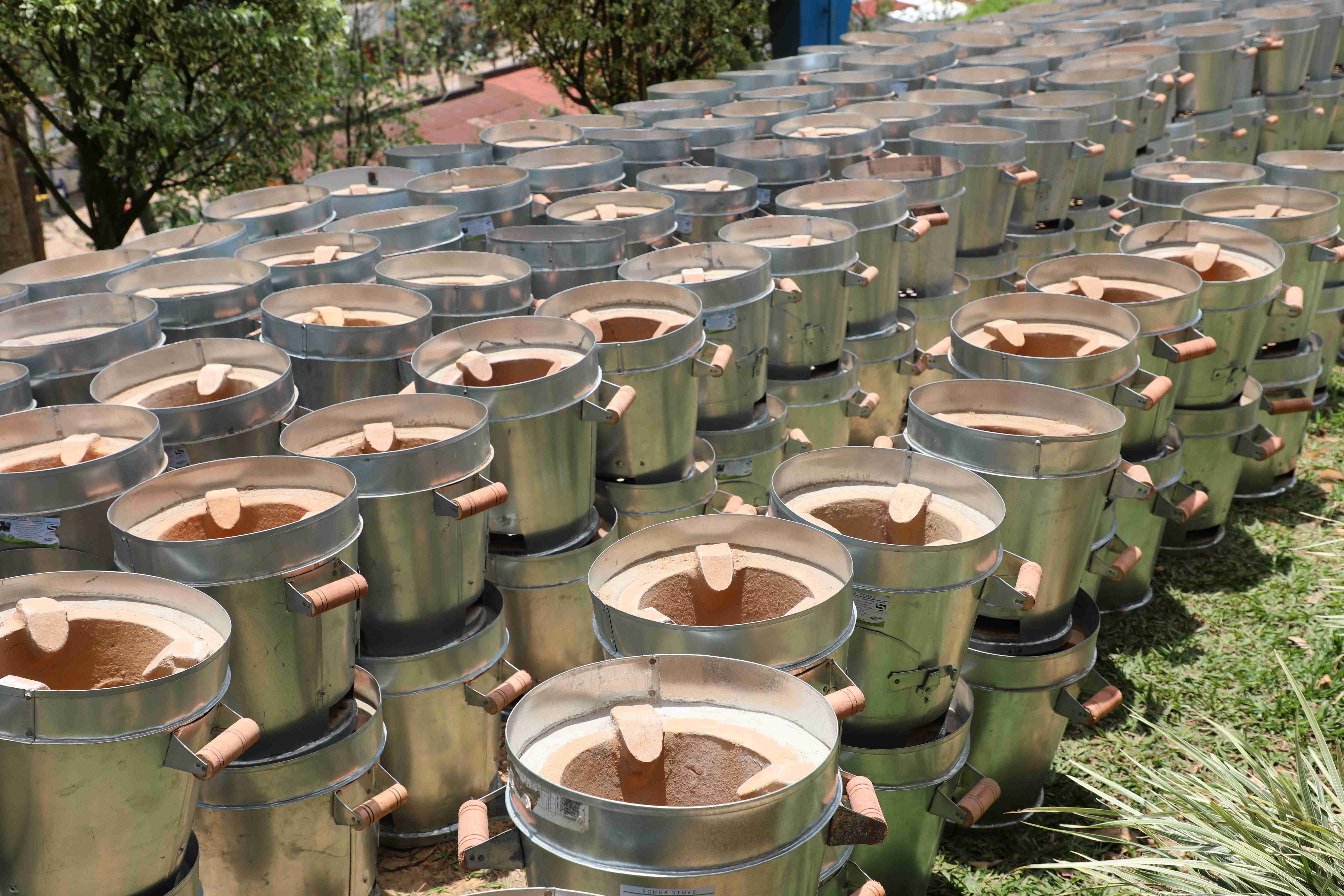
REMA’s LDCF3 Project distributes 5,000 improved cookstoves to beneficiaries to tackle climate change
The Rwanda Environment Management Authority distributes 5,000 improved cookstoves to beneficiaries of the Landscape Restoration Approach to Climate Proof the Rural Settlement Project, also known as LDCF3, in Kirehe and Gakenke Districts.
The cookstoves were distributed in line with the project’s long-term goal of climate proofing the rural settlements in both Districts.
The cookstoves will promote energy efficiency, as their thermal efficiency is above 30, which makes them reduce fuel consumption by up to 50 percent compared to traditional stoves, thus significantly saving CO2 emissions and lower the pressure on forests as less firewood needs to be harvested when using a cookstove of their kind.
“It was so hard for us to harvest firewood as we no longer have enough forests. Firewood here is so expensive to the extent that 5,000 RwF is not worth firewood that can last at least one week. Women and children are the most affected because they are directly involved in firewood harvesting. This stove will definitely relieve us because of its efficiency. The time we used to spend collecting firewood will also be allocated to income generating activities, ” said Claudine Mukamisha, a resident in Kirehe District.
Energy efficiency and afforestation are one of the project’s components.
In the beginning, 5,000 improved cookstoves (2,500 in Gakenke and the other 2,500 in Kirehe Districts) were distributed to 5,000 families. The cookstoves will not only promote energy efficiency, they will also help to improve human health, put an end to large scale deforestation and contribute to climate change mitigation.
“We were used to suffering from respiratory diseases associated with solid biomass fuel exposure because of using inefficient cookstoves. As we are provided with improved cookstoves, we are happy that our children and ourselves will no longer be exposed to high indoor pollution emanating from inefficient cookstoves” said Liliane Nyiramana, a resident in Gakenke District
According to Charles Sindayigaya, LDCF3 Project Coordinator, distributing cookstoves to beneficiaries is one of many other activities the project intends to accomplish.
“We have established radical and progressive terraces and embarked on afforestation activities to improve agricultural productivity and restore degraded ecosystems. The cookstoves we are distributing will also contribute to achieving the project’s goal of restoring the natural forests, as the cookstoves save energy compared to the traditional way of cooking.” Sindayigaya noted.
These cookstoves will also contribute to socio-economic development of beneficiaries, since due to their efficiency to save energy and time, beneficiaries will get the opportunity to do other income generating activities.
LDCF3 is a five-year initiative that will climate proof the rural settlements in Gakenke and Kirehe Districts by building communities’ resilience to climate change.
Beneficiaries commend the project’s interventions, saying that the cookstoves they were provided with as well as other project interventions will greatly contribute to gender equality.
LDCF3 Project under REMA’s implementation is funded by the Global Environment Facility (GEF) through the United Nations Development Programme (UNDP). Its intervention areas are Gakenke and Kirehe Districts.
Topics
More posts
Rwandans Urged to halt wetlands degradation and contribute to wetlands restoration
Kigali, February 02,2023- Rwanda joins the rest of the world to commemorate World Wetlands Day (WWD) usually celebrated every year with the ultimate…
IMF Managing Director commends Rwanda’s commitment to fighting climate change
The Managing Director of the International Monetary Fund (IMF), Kristalina Georgieva commends Rwanda’s commitment to fighting climate change and being…
Rwanda Environment Management Authority and AKADEMIYA2063 Launched Partnership to Support Climate Mitigation and Adaptation
Kigali, January 11, 2022 – In view of implementing the African Union Commission (AUC) resolution to support African Union (AU) member states to comply…
The new Global Biodiversity Framework with an ambitious plan to protect and restore nature
Montreal, Canada, 22 December 2022 - The “Kunming-Montreal Global Biodiversity Framework” (GBF) adopted at the 15th meeting of the Conference of…
Rwanda launches a five-year initiative to improve hazardous waste management
The Rwanda Environment Management Authority (REMA) and the United Nations Development Programme (UNDP) have today launched a five-year project to…
Rwanda calls on the world to put nature first and agree on an ambitious Global Biodiversity Framework
Rwanda is calling on nations of the world to join hands and agree on an ambitious Global Biodiversity Framework at this UN Biodiversity Conference…
Rwanda and Norway to host a "Roadmap to end plastic pollution by 2024" event at WCEF2022
Rwanda and Norway through the Rwanda Environment Management Authority (REMA) are organising a "Road map to end plastic pollution by 2040" side event…
Negotiations on global treaty to end plastic pollution begin in Uruguay
Rwanda will join nations from around the world in Uruguay to begin drafting a global treaty to end plastic pollution with the first session of the…
AIMS and REMA launch Kigali City Framework for Noise and Air Quality Monitoring Campaign
The African Institute for Mathematical Sciences (AIMS), in partnership with Rwanda Environment Management Authority (REMA), have today launched the…
